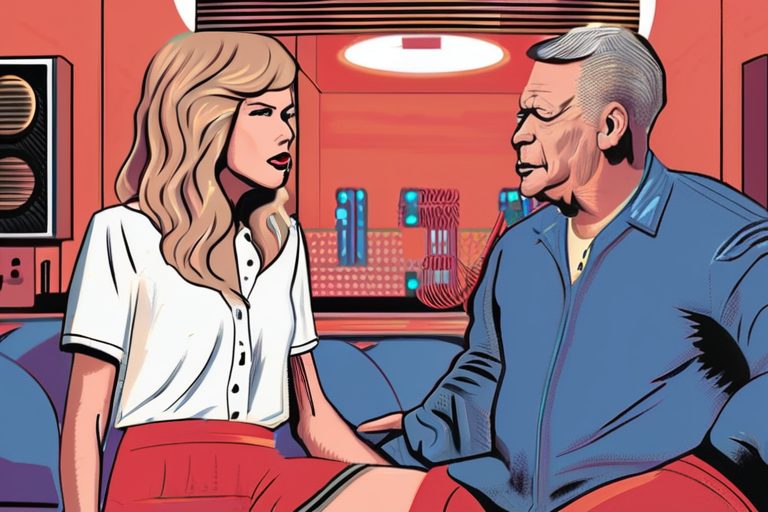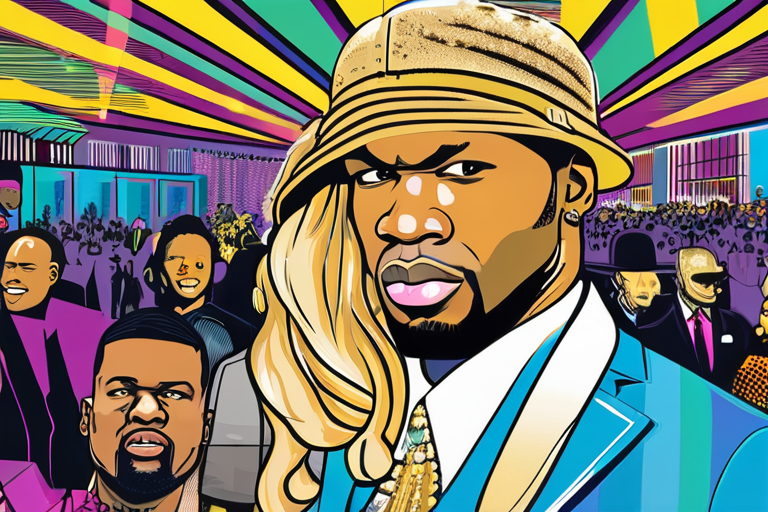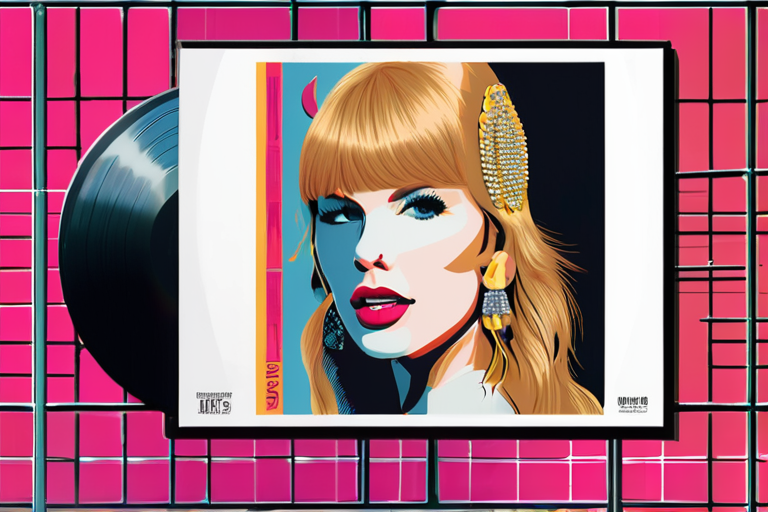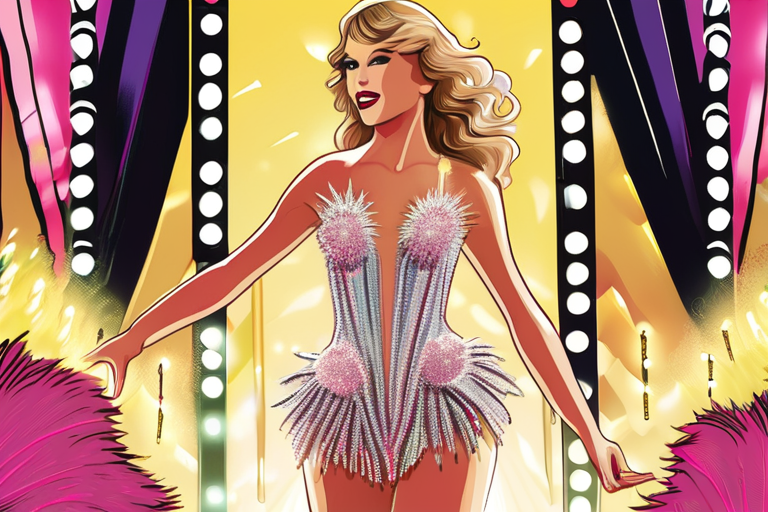Taylor Swift's "Father Figure" Sparks Debate Over Music Ownership and Industry Power Dynamics


Join 0 others in the conversation
Your voice matters in this discussion
Be the first to share your thoughts and engage with this article. Your perspective matters!
Discover articles from our community

 Hoppi
Hoppi

 Hoppi
Hoppi

 Hoppi
Hoppi

 Hoppi
Hoppi

 Hoppi
Hoppi

 Hoppi
Hoppi

50 Cent Celebrates Taylor Swift Shout-Out on 'The Life of a Showgirl' Rapper 50 Cent is basking in the glory …

Hoppi

The Life of a Showgirl: Unpacking Taylor Swift's Latest Vinyl and CD Offerings It's midnight on October 3rd, and the …

Hoppi

Taylor Swift's 'The Life of a Showgirl' Finally Hits the Stage After months of anticipation, Taylor Swift's highly-anticipated album "The …

Hoppi

Taylor Swift Drops Facade, Embracing Life as a Superstar In her newly released album, The Life of a Showgirl, Taylor …

Hoppi

Taylor Swift Shares Sweet Message With Swifties After 'The Life of a Showgirl' Drop: "An Album That Just Feels So …

Hoppi

Taylor Swift Drops the Facade: Singer Reveals Unbridled Love for Life of a Showgirl In a bold move, Taylor Swift …

Hoppi